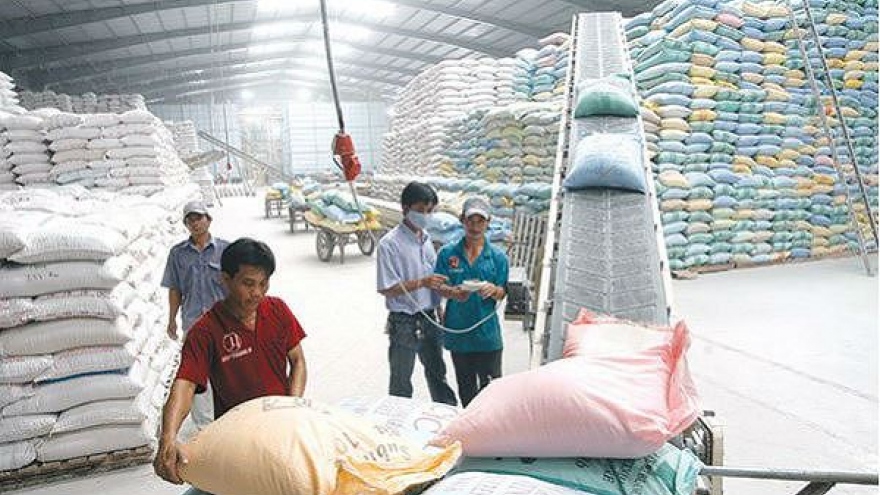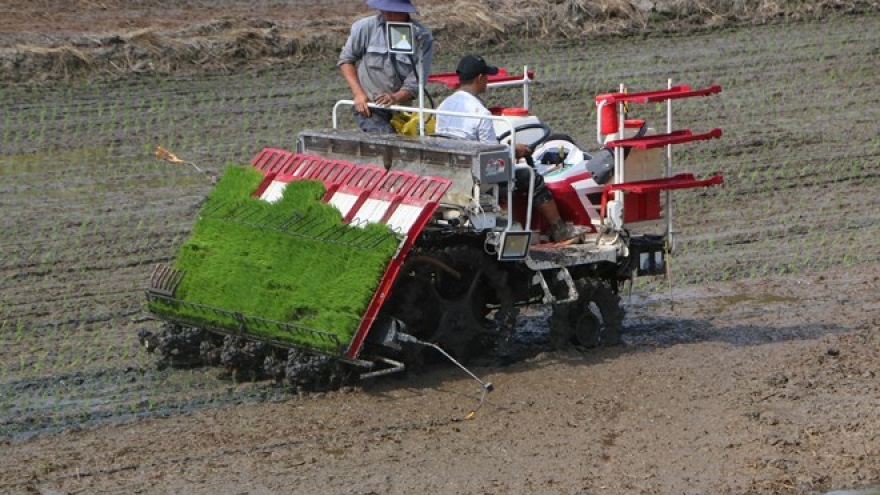Vietnam needs new vision for rice production
VOV.VN - Vietnam is one of the world’s top three rice exporters with yearly rice output of 26 to 29 million tons. Vietnamese rice is available in 150 countries and territories. But rapid changes in the global market have forced Vietnam to find new ways of exporting and developing its domestic rice market.
 |
Professor Dr. Bui Chi Buu, former Director of the Institute of Agricultural Science for Southern Vietnam, says every brand should be built on a high-quality foundation, recognized and remembered by consumers thanks to its tightly controlled quality and easily traced origin. But Vietnamese rice hasn’t impressed global consumers because of the way it is produced.
Buu said, “Vietnam cannot build a brand for its rice with its current small-scale production. Once the large-scale rice field model is successful, we can re-organize the production process. Our rice export strategy should promote a national brand. In the value chain, major enterprises should play a greater role.”
In addition to developing a national rice brand, Deputy Minister of Industry and Trade Tran Quoc Khanh underscored the need to professionalize the rice production process and expand sources of supply.
“Vietnam needs to optimize sources of supply. It will be quite easy to find an outlet when Vietnam’s total yield is about 5 million tons. But if it gains 6 or 7 million tons a year, that will be a question. So we need to optimize production and its structure. Production restructuring is required.”
Associate Professor, Dr. Tran Dinh Thien, former Director of the Vietnam Institute of Economics, says that due to climate change, shifting crop structure to increase the value of farm produce, reducing production risks, and replacing wherever possible with aquaculture, animal husbandry, or vegetables is the future of Vietnam’s rice production.
“It costs a lot of human labor, fertilizer, water, and petrol to pursue an agricultural production strategy based on high output rather than quality. We should change the structure of food production now that our food security is guaranteed. It’s important to select high-quality rice varieties and reduce the rice cultivation area to conserve water,” said Thien.
Minister of Agriculture and Rural Development Nguyen Xuan Cuong said the sector is reviewing the national food safety program in which 500,000 ha out of 4 million ha of rice will be converted to more profitable crops. The rice sector needs a new vision and appropriate strategies to create the most profitability for Vietnamese farmers and rice businesses.
Cuong noted, “We need to restructure production and focus on links, processing, and market organization. We should pay more attention to the domestic market because our population is now nearly 100 million people. 33 million of them are workers and 40% are urban residents. Tastes vary so we must match production to the demand in each region.”
Vietnam earned more than 3 billion USD from exporting 6 million tons of rice last year. Its strategy for the 2021-2030 period is to reduce the amount of exported rice but increase the value of the made-in-Vietnam rice brand to earn greater revenue.


